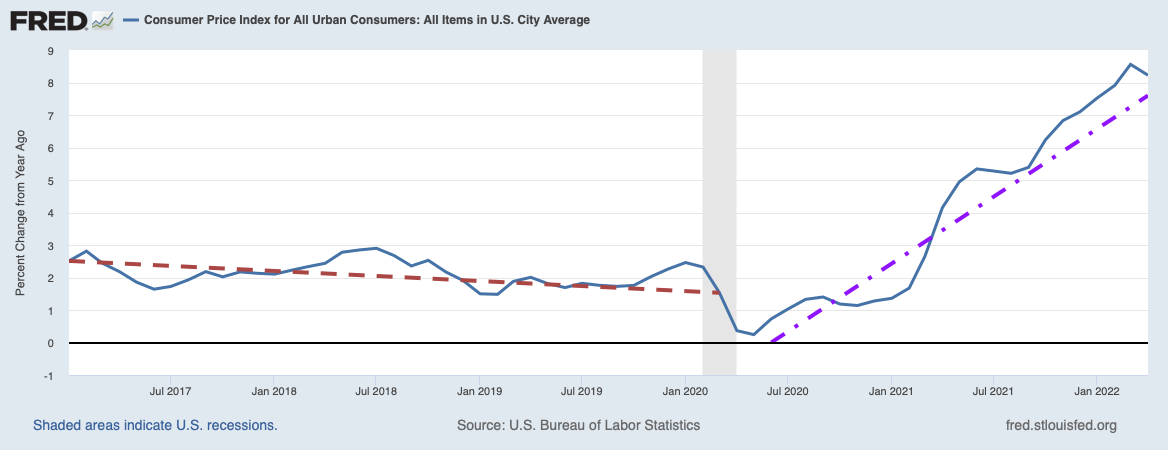The Progressive Disaster That Is Illinois
Illinois Speaker of the House Michael Madigan speaking to press about the status of the state budget on June 22, 2017 during a special legislative session called by GOP Governor Bruce Rauner
Screenshot of an Illinois News Network video.
No progressive-dominated state exemplifies the bleeding of population and resources to red states more than the deep blue state of Illinois. It is a perfect example of the forces described in the post The Ideological Balkanization of the United States.
Illinois In the News
The state of Illinois made news recently in a very bad way when S&P Global Ratings and Moodys both dropped the credit rating for Illinois state bonds to one level above junk. Writing on the PJMedia website, Rick Moran described the situation as follows:
Ratings agencies have been downgrading Illinois’ credit rating for years, though they’ve accelerated the process as the stalemate has dragged on between Republican Gov. Bruce Rauner and the Democrats who control the General Assembly.
The agencies are concerned about Illinois’ massive pension debt, as well as a $15 billion backlog of unpaid bills and the drop in revenue that occurred when lawmakers in 2015 allowed a temporary income tax increase to expire.
“In our view, the unrelenting political brinkmanship now poses a threat to the timely payment of the state’s core priority payments,” S&P stated when it dropped Illinois’ rating to one level above junk, which was just after lawmakers adjourned their regular session on May 31 without a deal.
Moody’s did the same, stating: “As the regular legislative session elapsed, political barriers to progress appeared to harden, indicating both the severity of the state’s challenges and the political difficulty of advocating their solutions.”
This last week the GOP Governor Bruce Rauner continued his three year battle with Illinois House Speaker Michael Madigan by calling a special legislative session to avoid a third year of gridlock on the state budget. Republicans want a budget capped at $36 billion that features other government reforms such as government consolidation and term limits, along with a temporary tax increase. The Democrats appear to be willing to accept a $37.3 billion budget with a $5 billion annual income tax hike.
Being $14.5 billion in arrears in paying its bills, particularly to small business suppliers, the state of Illinois has very little room for error in its financial affairs. In addition, one of the largest reasons for its recent credit downgrades is its humongous pension debt. Last November the state claimed it had $130 billion in unfunded pension liabilities, but Moody’s says that level could be almost twice as high at $251 billion. A former budget advisor to Gov. Rauner, Donna Arduin, said that if pensions are not soon greatly curtailed, as much as one in four tax dollars will go to pension payments to retired employees. Instead of funding needed state activities, tax dollars will increasingly go to paying their retired employees, many of whom no longer even live in the state to spend their state pensions there.
Illinois may soon suffer the distinction of being the first U.S. state to have its credit rating fall to absolute junk status.
Illinois’ Losses of People and Businesses
Given the dysfunction of Illinois state government, it is no surprise that so many people want to flee the state. Back in 2014 a Gallup poll of state residents showed 50% would like to leave the state if they could! Moreover, the same poll showed that 19% were extremely/very/somewhat likely to move within 12 months. Only residents of Nevada at 20% expressed a greater intention to leave. In January 2015 the Chicago Tribune in the post Goodbye, Illinois: residents are leaving for other states bemoaned this sad fact.
Even on days when the temperature is above zero, Illinois struggles to keep people here. They’re leaving, in droves, for states with sunnier economic opportunities.
New census data and other figures reveal the cold hard truth: More people are moving away than coming, tipping Illinois last year into the dreadful category of states with declining populations. From July 2013 to July 2014, Illinois shrank by about 10,000 residents in all, joining other states in decline such as West Virginia, Connecticut and Alaska.
When demographer William Frey of the Brookings Institution analyzed the annual Census Bureau estimates, two facts jumped out at him. First, Florida overtook New York to become the third-most-populous state (after California and Texas). And second, Illinois is badly leaking people.
“The faucet is starting to turn up in terms of moving to the Sun Belt,” Frey tells us. “Obviously states in the Northeast and Midwest, like Illinois, are going to be part of that surge.” But still: “I was quite surprised by the Illinois out-migration and that there is negative growth.”
Although the implication of the quote is the difference in climates is motivating the exodus, the article does take note of Illinois’ economic problems. Data from the American Legislative Exchange Council in their publication Rich States, Poor States, 10th Edition by Arthur B. Laffer, Jonathon Williams, and Stephan Moore, and used by the Heritage Foundation shows the cumulative net out-migration from Illinois between 2003 and 2012 to be 623,467. Between 2006 and 2015 that cumulative loss increased to 690,578. In fact the out-migration from Illinois is accelerating, as can be seen in the bar graph below.

From Rich States, Poor States, 10th Edition by Arthur Laffer Stephen Moore, Jonathan Williams
In 2015, Illinois lost in excess of 100,000 people. Even for a state with a population of 12.6 million, such losses can not go on for long without serious losses of political and economic power.
Views: 1,431






























